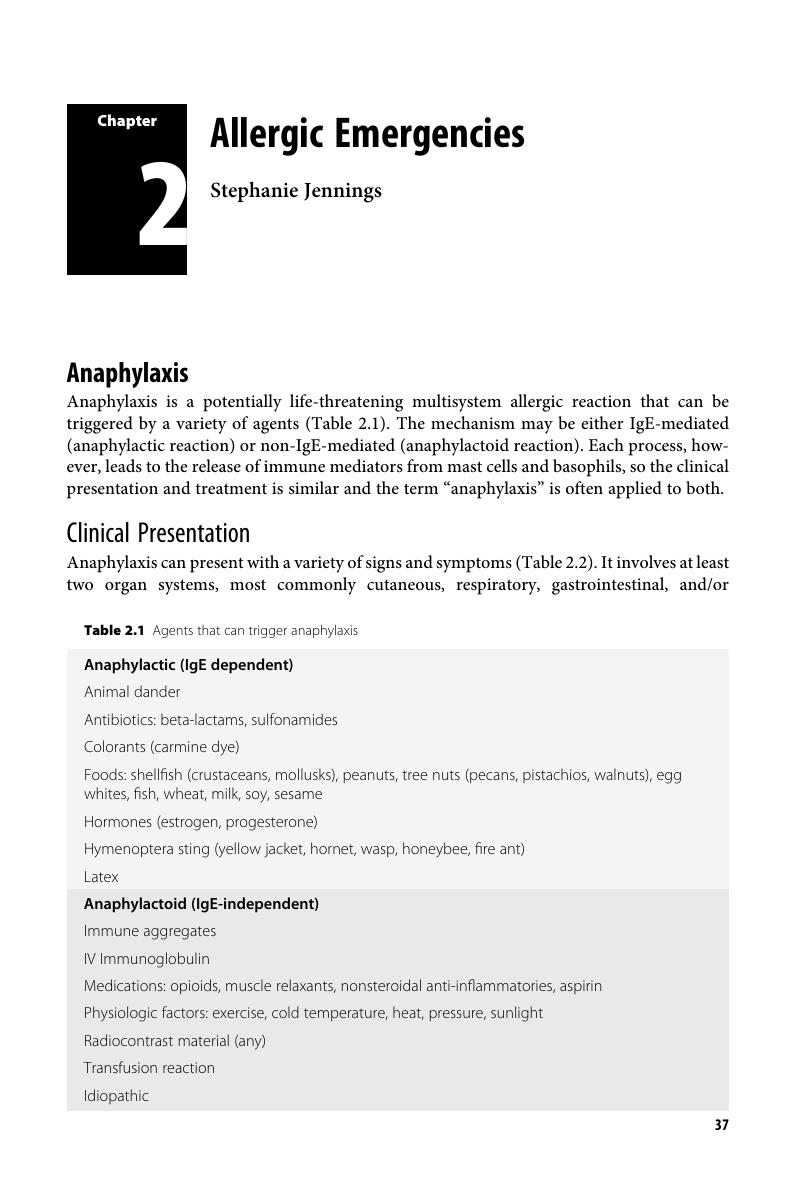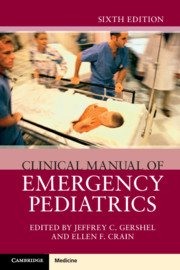Book contents
- Clinical Manual of Emergency Pediatrics
- Clinical Manual of Emergency Pediatrics
- Copyright page
- Contents
- Contributors
- Preface
- Pediatric Emergency Management Code Card
- Chapter 1 Resuscitation
- Chapter 2 Allergic Emergencies
- Chapter 3 Cardiac Emergencies
- Chapter 4 Dental Emergencies
- Chapter 5 Dermatologic Emergencies
- Chapter 6 Ear, Nose, and Throat Emergencies
- Chapter 7 Endocrine Emergencies
- Chapter 8 Environmental Emergencies
- Chapter 9 Gastrointestinal Emergencies
- Chapter 10 Genitourinary Emergencies
- Chapter 11 Gynecologic Emergencies
- Chapter 12 Hematologic Emergencies
- Chapter 13 Infectious Disease Emergencies
- Chapter 14 Ingestions
- Chapter 15 Neurologic Emergencies
- Chapter 16 Ophthalmologic Emergencies
- Chapter 17 Orthopedic Emergencies
- Chapter 18 Physical Abuse
- Chapter 19 Psychological and Social Emergencies
- Chapter 20 Pulmonary Emergencies
- Chapter 21 Radiology
- Chapter 22 Renal Emergencies
- Chapter 23 Rheumatologic Emergencies
- Chapter 24 Sedation and Analgesia
- Chapter 25 Trauma
- Chapter 26 Wound Care and Minor Trauma
- Chapter 27 Special Considerations in Pediatric Emergency Care
- Index
- References
Chapter 2 - Allergic Emergencies
Published online by Cambridge University Press: 01 June 2018
- Clinical Manual of Emergency Pediatrics
- Clinical Manual of Emergency Pediatrics
- Copyright page
- Contents
- Contributors
- Preface
- Pediatric Emergency Management Code Card
- Chapter 1 Resuscitation
- Chapter 2 Allergic Emergencies
- Chapter 3 Cardiac Emergencies
- Chapter 4 Dental Emergencies
- Chapter 5 Dermatologic Emergencies
- Chapter 6 Ear, Nose, and Throat Emergencies
- Chapter 7 Endocrine Emergencies
- Chapter 8 Environmental Emergencies
- Chapter 9 Gastrointestinal Emergencies
- Chapter 10 Genitourinary Emergencies
- Chapter 11 Gynecologic Emergencies
- Chapter 12 Hematologic Emergencies
- Chapter 13 Infectious Disease Emergencies
- Chapter 14 Ingestions
- Chapter 15 Neurologic Emergencies
- Chapter 16 Ophthalmologic Emergencies
- Chapter 17 Orthopedic Emergencies
- Chapter 18 Physical Abuse
- Chapter 19 Psychological and Social Emergencies
- Chapter 20 Pulmonary Emergencies
- Chapter 21 Radiology
- Chapter 22 Renal Emergencies
- Chapter 23 Rheumatologic Emergencies
- Chapter 24 Sedation and Analgesia
- Chapter 25 Trauma
- Chapter 26 Wound Care and Minor Trauma
- Chapter 27 Special Considerations in Pediatric Emergency Care
- Index
- References
Summary

- Type
- Chapter
- Information
- Clinical Manual of Emergency Pediatrics , pp. 37 - 46Publisher: Cambridge University PressPrint publication year: 2018

